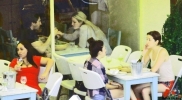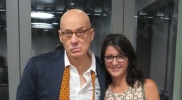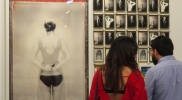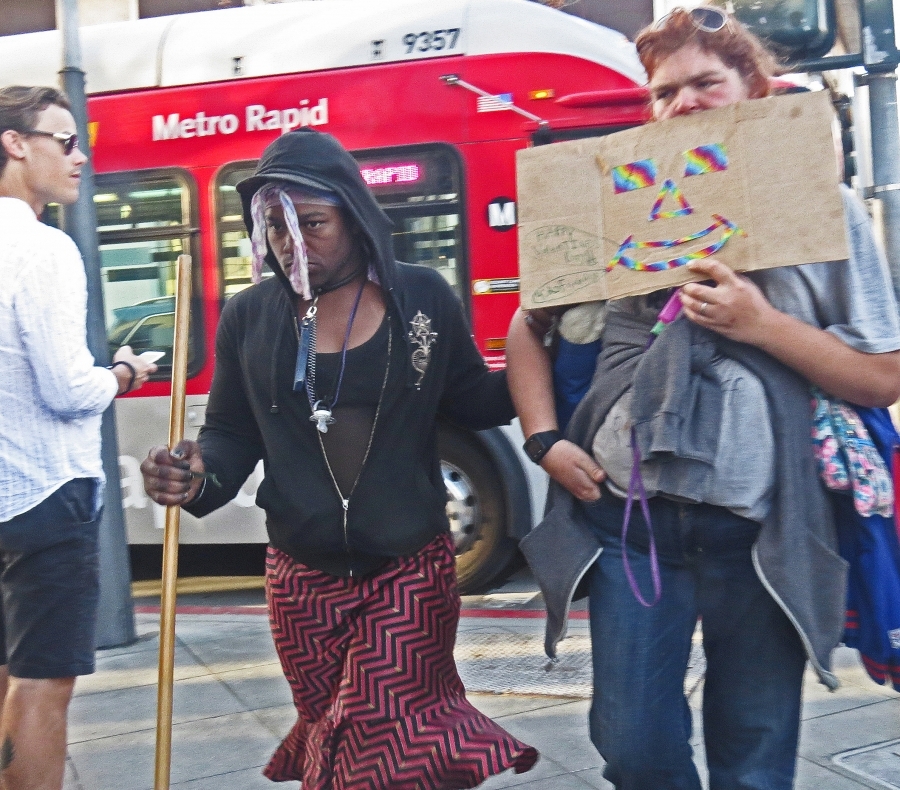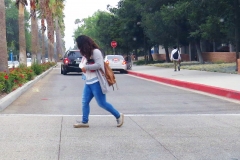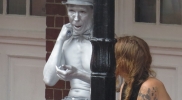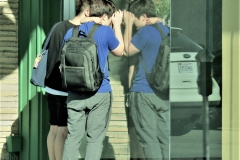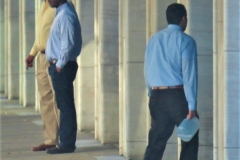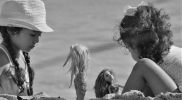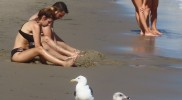|
|
Best Trivis - Diaries & Journals
|
Favorite Trivia – DIARIES & JOURNALS & MEMOIRS
|
A student digging for knowledge got more than she expected when she uncovered 12 uncut diamonds tucked inside an 86-year old diary. Gerda Ray was doing research at Yale University’s Sterling Memorial Library when she found the gems inside a letter tucked in a 1902 diary of author Katherine Mayo.
|
Anaïs Nin’s ashes are scattered over Santa Monica Bay in Mermaid Cove (CA). Nin’s original diaries are located in the UCLA Library.
|

Just for Laughs: Self-Isolation Quarantine Diary (RVtravel.com – Mark Shaffler)
|
Charles Dickens kept a diary every year, but burnt each at the end of the year.
Edward Robb Ellis – A Diary of a Century
|
| “I don’t keep a journal. I’m not that interested in myself.”
Marty Rubin
|
| “Freed from the demands of decision and intention, adrift on some inner sea, we observe our various movements as if they belonged to someone else, and yet we admire their involuntary excellence. What other reason might I have for writing this—ridiculous journal of an aging concierge—if the writing did not have something of the art of scything about it? The lines gradually become their own demiurges and, like some witless yet miraculous participant, I witness the birth on paper of sentences that have eluded my will and appear in spite of me on the sheet, teaching me something that I neither knew nor thought I might want to know. This painless birth, like an unsolicited proof, gives me untold pleasure, and with neither toil nor certainly but the joy of frank astonishment I follow the pen that is guiding and supporting me.”
Renée (Elegance of the Hedgehog – Muriel Barbery)
|
| “I am a serious serial diarist.”
Patty Martino Alspaugh
|
| “It wasn’t easy revisiting what are now 156 volumes of my diary. I broke the job up—a month or two per day—but after reading about me, I’d have to spend the rest of the day being me.” [Introduction]
Theft by Finding: Diaries (1977-2002) – David Sedaris
|
| “As you were reading your World War II book about Auschwitz, I was finishing Alan Moorehead’s Gallipoli: absolutely fascinating and terrifying. . . Ted’s father fought at Gallipoli, and a diary in his breast pocket stopped a bullet, so I felt incalculably lucky as I read of the mammoth, pointless slaughters that he survived and fathered the one husband I could imagine.” [August 16, 1960]
Sylvia Plath – Letters Home: Correspondence 1950-1963, ed. by Aurelia Schober Plath
|
 |
| Actress Rosamond Pinchot’s husband Bill Gaston stole her diaries to use in court if she tried to divorce him (Pinchot’s diaries were ‘lost’ for 70 years until Pinchot and Gaston’s son died and the diaries were handed over to their granddaughter, Bibi Gaston.)
The Loveliest Women in America: A Tragic Actress, Her Lost Diaries and Her Granddaughter’s Search for Home – Bibi Gaston
|
| “It’s the good girls who keep the diaries; the bad girls never have the time.”
Tallulah Bankhead
|
| “The thing about my diary is that I lied in it. I obscured the truth. I never told even the empty space around me the whole story. I was afraid someone would find it, read it, know me. I wanted them to know a different girl. A better one.”
T.E. Carter
|
| “Marie Bashkirtseff: This evening went to the Library and read about her in Mathilde Blind’s introductory essay to her Journal. I am simply astounded. It would be difficult in all the world’s history to discover any two persons with temperaments so alike. She is the very ‘spit’ of me… Oh, Marie Bashkirtseff! how we should have hated one another! She feels as I feel. We have the same self-absorption, the same vanity and corroding ambition. She is impressionable, volatile, passionate—ill! So am I. She has written down all my thoughts and forestalled me! Already I have found some heart-rending parallels. To think I am only a replica: how humiliating for a human being to find himself merely a duplicate of another. Is there anything in the transmigration of souls? She died in 1886. I was born in 1889.” [October 14, 1914]
The Journal of a Disappointed Man – W. N. P. Barbellion
|
|
Life Lesson #2 (of 10) From Queen Elizabeth II (AARP, September 2020)
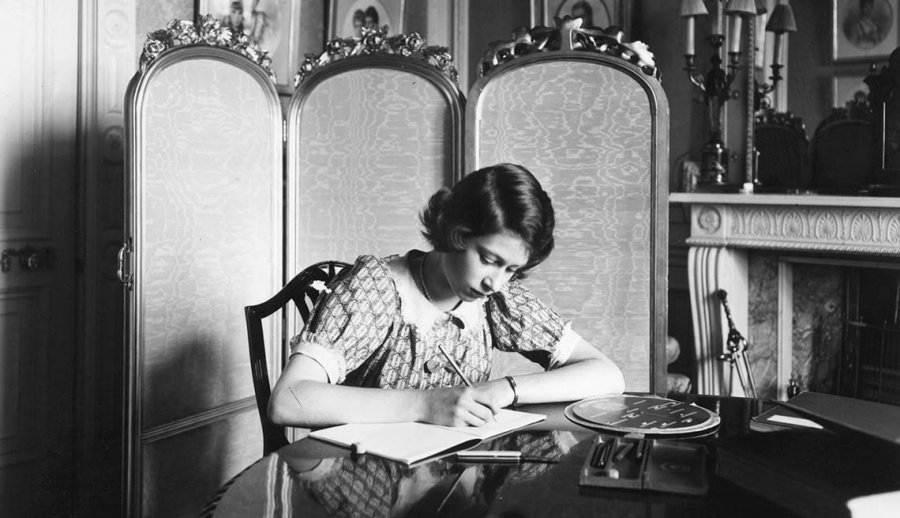 PHOTO BY: LISA SHERIDAN/STUDIO LISA/GETTY IMAGES
PHOTO BY: LISA SHERIDAN/STUDIO LISA/GETTY IMAGES
2. Stick to a schedule
From her first day as queen, Elizabeth has calmed her mind by following a strict daily regimen, ending each day by writing in her journal.
|
| “If this journal doesn’t mention the war, it is first of all because this is not a journal. It is my little secret ruse for preserving joys or my happiness, my immense, happiness, all perfumed with inexplicable things. And at the same time it’s protection. Protection against too much happiness.“
Jacques Henri Lartigue (Light Matters: Writings on Photography – Vicki Goldberg)
|
| “Edith squirmed in her straight chair, then closed her pen and diary and stood up. The entry was a lie. But after all who was going to see it. And she felt better, having written it, felt less melancholic, almost cheerful, in fact.”
Patricia Highsmith – Edith’s Diary
|
| “The diary for 1945—the end of the war—was the last dated diary. Sylvia now asked me to give her each Christmas an undated journal, because, ‘When the big moments come, one page is not enough.'” [Introduction]
Sylvia Plath – Letters Home: Correspondence 1950-1963, ed. by Aurelia Schober Plath
|
| “To that friend of mine who, when I wrote him endless letters, said coldly, ‘Why not keep something for yourself!'”
Enid Bagnold [author of National Velvet] – A Diary Without Dates
|
| “Brief notes from travel journals expand like tea blossoms when I’m revising. They provide scaffolding for memory.” [March 23, 1944]
“Spent the evening browsing in my old journals, which Perpetua had packed away in a special suitcase. I see that I have always had to wait a few years before I look at notebooks like this again. Over time certain passages wither on the vine, while others continue to mature.” [April 5, 1944]
“Going through my travel journals makes it clear how much they have been shaped by topical themes. The age we live in affects their content the way fermentation and aging affect wine in the depths of the cellar. Eventually, it must be carefully rebottled and have the yeasts poured off.” [November 24, 1944]
Ernst Jünger – A German Officer In Occupied Paris: The War Journals, 1941-1945
|
| “A diary is perfect work for the elderly pen. There is a built-in coziness to the genre. The mind is curled up snugly on itself; no worry over such muscular matters as narrative drive, plot, irony, suspense—all those laborious considerations of a real writer. No need to invent words, insert them between quotation marks and follow with ‘he said’ or ‘she said.’ A certain amoebic shapelessness prevails.” [Preface]
Richard Selzer – Diary
|
| “Painting is just another way of keeping a diary.”
Picasso
|
| “Most of my feelings have remained in the depths of my soul, or have been revealed in my works only as applied to imaginary beings. Now that I hanker after my chimeras without pursuing them, I want to revive the inclinations of my best years: these Memoirs will be a mortuary temple erected by the light of my memories…
“Will this work inspired by my ashes and destined for my ashes survive me? It may be that my work is bad; it may be that these Memoirs will fade into nothingness on seeing the light of day: at least the things which I have told myself will have served to beguile the tedium of these last hours which no one wants and which one does not know how to employ. The end of a lifetime is a bitter age: nothing pleases because one is worthy of nothing; useful to no one, a burden to everyone, close to our last resting-place, we have only a step to take to reach it… Fie upon the clouds that hover now over my head!”
François-René de Chateaubriand – The Memoirs of Chateaubriand
|
| “I hope the leaving is joyful—and I hope never to return.”
Frida Kahlo’s last diary entry
|
| “I am fond of my little old book in which I have recorded so many changes, and shall take to writing in it again. It will perhaps last me all through the life that is left to me.” [May 20, 1870]
The Journals of George Eliot, ed. by Margaret Harris and Judith Johnston
|
| “Loneliness is the diary keeper’s lover. It is not narcissism that takes them to their desk every day. And who ‘keeps’ whom, after all? The diary is demanding; it imposes its routine; it must be chored the way one must milk a cow; and it alters your attitude toward life, which is lived, finally, only in order that it may make its way to the private page.”
William H. Gass
|
| “I write best when I am happy, because I then have that saving sense of objectivity which is humor and artistic perspective. When I am sad, it becomes a one-dimensional diary. So a full, rich life is essential.”
Sylvia Plath
|
 |
| “Mary Moody Emerson had a decisive influence on the intellectual development of her young nephew, Ralph Waldo. She was a small, frail woman with a macabre sense of her own mortality—she slept in a bed shaped like a coffin and wore a burial shroud when traveling. . . ‘Always do what you are afraid to do,’ she once advised him. “Emerson took that counsel to heart, becoming the most iconoclastic thinker in nineteenth-century America. . .
“Emerson always wanted to confront life—and death—face to face. In the journals he began keeping when he was sixteen, he constantly chided himself for dullness, for not working hard enough at his writing, for failing to keep his mind lively and original. ‘What is the hardest task in the world?’ he asked in one entry: “To think” . . . For Emerson, Vesuvius was the perfect metaphor for the creative life because true originality—in art as well as in life—comes from turmoil, the constant boiling of new insights and ideas. . .
“Emerson referred to his journals as his ‘savings bank.’ Like Lichtenberg’s ‘waste-books,’ they were repositories for the random observations and reflections from which he drew materials for the lectures and essays that contain his greatest aphorisms. His journals are crammed with quotations culled from his vast and eclectic reading.”
Geary – The World in a Phrase: A Brief History of the Aphorism
|
| “Princess Margaret felt most at home in the company of the camp, the cultured and the waspish. It was to be her misfortune that such a high proportion of them kept diaries, and moreover, diaries written, with a view to publication.”
Craig Brown – Ninety-Nine Glimpses of Princess Margaret
|
| “That these jottings contain so little that is personal comes not only from the fact that i myself am not very interested in personal matters (and don’t really have at my disposal a satisfactory mode of presenting them), but mainly from the fact that from the beginning i anticipated having to take them across frontiers whose number and quality it was impossible to predict. This last thought prevents me from choosing any other than literary topics.” [April 21, 1941]
Bertolt Brecht – Journals 1934-1955
|
| “Gonna go to a movie with Bob. I need a normal night out… I’m over being me. Even writing in this diary is boring me ’cause it’s all about me.'” [October 3, 1987]
“I’m sitting here on the side of the road looking out over the ocean. I’m glad I brought my diary along. It’s too beautiful not to stop and take it all in and even try to write it down.” [October 6, 1987]
Nikki Sixx – The Heroin Diaries: A Year In The Life Of A Rock Star
|
| “Best friends know where your journals are kept in case of ‘reference emergencies.'”
Helen Malandrakis – Best Friends Never Have Bad Hair Days
|
| “Once when Mallory was in high school, after we had a big fight, she stormed into her room and started pounding on her laptop. From then on, I assumed her journal was a repository for her anger. So when Mal gave me the password before she went into transplant (she was afraid she ‘might not make it to the other side’), I imagined reading a recap of everything I’d ever done wrong as a mother. It was a terrifying thought.
“I opened her journal the day of her memorial, thinking there might be something I could use when speaking about her. When I saw its scope—2,500 pages of her reflections over ten years—it became clear that Mallory had given me the most precious and unexpected gift a grieving mother could hope for.”
Mallory Smith – Salt In My Soul: An Unfinished Life
|
| “Some feelings are more difficult to release than others… journal about them. Write exactly how you feel, why you feel that way, and what it would take to move on… Shining a light on troublesome feelings is the first step toward letting them go. Sharing them, whether on paper or with another person, offloads some of the burden, bringing an immediate sense of lightness and relief.”
Francine Jay – Lightly: How to Live a Simple, Serene & Stress-Free Life
|
| “Women are like locked diaries that men expect to read like open books.”
Munia Khan
|
| “I wish I had an account of just the meals we ate, or a log of the calls that came in…. when you live so utterly in the present, the yearning to record it goes away. To write in a diary you have to hope to read it later—or to last long enough to make the appointment two weeks down the road. Right now you are trying not to vomit dinner.”
Paul Monette – Borrowed Time: An AIDS Memoir
|
| “In the diary you find proof that in situations which today would seem unbearable, you lived, looked around and wrote down observations, that this right hand moved then as it does today, when we may be wiser because we are able to look back upon our former condition, and for that very reason have got to admit the courage of our earlier striving in which we persisted even in sheer ignorance.”
Franz Kafka
|
John: “My wife thinks I’m too nosy.”
Ron: “How do you know?”
John: “She wrote it in her diary.”
“You Gotta Laugh” – AARP Bulletin, September 2018
|
| “When I mentor young writers whose work I admire, I encourage them to notice their voice everywhere and to look for drafts in everything. I tell them to listen to their texts, their emails, and, yes, their journals for traces of voice that can be culled into what they really have to say.”
Mecca Jamilah Sullivan (A Manner of Being: Writers on Their Mentors – Annie Liontas & Jeff Parker)
|
| “According to an article I read this morning, Scouting was invented to rescue boys from the clutches of their mothers and schoolteachers. The fear was that they’d turn out gay, or deviant, as they said back then. Parents were advised to be on the lookout for boys who willingly took baths and kept diaries. Guilty and guilty again.” [February 12, 1996]
Theft by Finding: Diaries (1977-2002) – David Sedaris
|
| “Incidentally, I don’t usually update my notes until the following day, and I do not date them on the day of their writing but rather the day they occurred. Nonetheless, it happens that some overlap can occur between both dates. That remains one of the imprecisions in perspective that I don’t attend to very strictly.”
A German Officer in Occupied Paris: The War Journals, 1941-1945 – Ernst Jünger
|
| “While I travel, every thought, every musing, every bit of good, bad, and ugly gets recorded in my travel journal… Throughout my teens and adulthood, from short trips to long journeys, I have found comfort, clarity, and personal development by maintaining a journal. In many ways, keeping a travel journal is a present to your future self. I have been able to track personal and photographic growth, ambition, artistic intention, philosophies, and important stories that might have otherwise been blurred or completely forgotton over the years. I can more effectively tell rich anecdotes and write intuitive articles by going back to my notes, maps, and other saved mementos to relive the details of each adventure. Keeping an effective and useful travel journal is an art of its own. It takes practice and effort, but it will provide valuable background for images you create on your travels and help capture the meditative state that you feel on the road.”
The Enthusiast’s Guide To Travel Photography – Jordana Wright
|
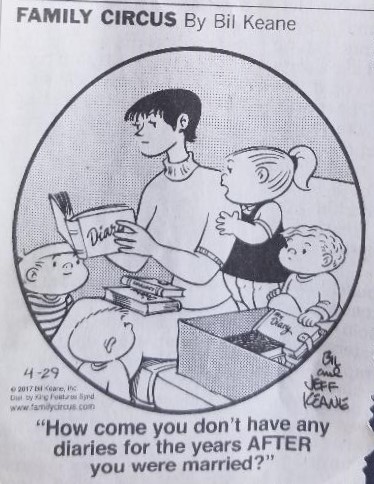 |
| “…I buy and read Cecil Beaton’s latest book of diaries. How lucky—in this one sense—he is to be queer and unmarried and thus constrained to use a diary as the receptacle for his outer life and inner thoughts. In marriage the partners share the outer life, which thus goes unrecorded, and leak away their inner thoughts to each other and probably oblivion. Yet (writing this halfway across the Atlantic) I would not swap Kathleen [wife] for the authorship of a masterpiece.” [May 27, 1972]
Kenneth Tynan Diaries
|
| “I rediscovered writing and reading and thinking in my first or second year of college and used that as a way to rebuild myself, a process I write about in Dreams from My Father… I was hermetic—it really is true. I had one plate, one towel, and I’d buy clothes from thrift shops. And I was very intense, and sort of humorless. But it reintroduced me to the power of words as a way to figure out who you are and what you think, and what you believe, and what’s important, and to sort through and interpret this swirl of events that is happening around you every minute. And so even though by the time I graduated I knew I wanted to be involved in public policy, or I had these vague notions of organizing, the idea of continuing to write and tell stories as part of that was valuable to me. And so I would come home form work, and I would write in my journal or write a story or two.”
Barack Obama, “What Books Mean to Me” (Interview by Michiko Kakutani in Black Ink)
|
| “In a diary you can quote or misquote the bible, Proust, Dante. You can drop in as much Latin, Greek, French, or Japanese as makes you feel good. And a diary is the repository for your secret heresies.”
Richard Selzer – Diary
|
| “In the vast silence even words begin to desert him [Robinson Crusoe]. He tries to keep a diary in order to stay in touch with his civilized self, but the small supply of watered-down ink that he salvages from the shipwreck gradually starts to fail and the words that he writes eventually disappear, leaving Robinson’s diary as blank as his horizon.”
1001 Books You Must Read Before You Die – Peter Boxall, ed.
|
| “About halfway through working on the book [Brother, I’m Dying] , Danticat started to understand what parts of the story needed to be told and what parts she could leave out ‘After a while, in the process, you have some distance, and you start thinking of it as a story, not as your story. that’s a helpful distance, because that’s when you get it out of being like your diary.’
She explains that this is an important message she shares with young people who want to write memoir. ‘It seems like everybody writes memoir because we can write a very heartfelt thing on Facebook and get a a lot of people to respond. It really becomes memoir, though, when you open up space for others to enter—when it becomes about more than you, or your family or your own personal feelings.'”
Edwidge Danticat – Brother, I’m Dying (Melanie Brooks – Writing Hard Stories)
|
| “Everyone after supper started their Diary, Mrs G, Igoe, Daisy and Dot.” [July 15, 1885]
“Diaried a lot of nonsense.” [July 16, 1885]
The Diary of Thomas Alva Edison
|
| “I never travel without my diary. One should always have something sensational to read in the train.” [Gwendolen to Cecily]
The Importance of Being Earnest – Oscar Wilde
|
| “‘I used to suffer from depression and I could easily slip back into that if I weren’t steadily paying attention to time management. With all the things that I do, I definitely need time for me,’ she says [Kelly Clarkson]. One of her favorite self-care practices includes keeping a gratitude journal. And she’s a big believer in surrounding herself with positive people. ‘Once I started weeding out [negative] people, it made a huge difference,’ she says.”
Parade, Sept. 1, 2019
|
| Natasha Trethewey’s mother gave her a diary on her 12th birthday: “She knew that I was hurting, that her situation had upset me; I had told her so [Trethewey’s stepfather was beating her mother regularly. When Trethewey told her 5th grade teacher, the teacher responded: ‘sometimes adults get angry with each other.’]
“The diary gave me a crucial outlet. My mother knew that whatever else there was in me needing articulation I would have to write it down… I was thrilled to have a book for my thoughts, for my eyes alone. that feeling was short-lived. It wasn’t long before I came home from school one day to find the lock on the diary broken. ‘Who said you could go to Washington?’ Joel said, standing in the doorway to my bedroom.“No longer was I content to describe my days, to begin my entries ‘Dear Diary,’ to write as if to an intimate friend, a second self… ‘You stupid motherfucker!’ I wrote. ‘Do you think I don’t know what you’re doing?’ Each entry thereafter was a litany of indictments, my accounting of all the things he had done. Not only had I stopped expecting that my words could be private, but also I had begun to think of them as a near-public act of communication, with a particular goal, and that there could be power in articulating what I needed to say. Even more, there was something powerful in writing it. I could push back by not holding inside what might otherwise have continued to divide and erode me. This was long before I knew what Joel was actually capable of, which allowed me a certain fearlessness. I was sure that he would not tell my mother, because that would mean he’d have to reveal what he was doing: invading the private world of the diary she had given me.” [Trethewey’s stepfather Joel would kill her mother 7 years later.]
Natasha Trethewey – Memorial Drive: A Daughter’s Memoir
|
| “When it comes to life-writing, the real, honest, diaristic, warts-and-all kind, the only thing I have to show for myself—before St. Peter and whomever else—is my Yahoo! email account, opened circa 1996 and still going In there (though I would rather die than read it all over) is probably the closest thing to an honest account of my life, at least at this writing.”
Zadie Smith – Feel Free (“Life Writing”)
|
| “In his daybooks, Edward Weston was trying to focus himself as man and photographer. To be alone and to think, free for an hour of family, friends, loves, he rose in the dark before dawn and poured down on the page in his massive scrawl whatever was seething in him. The ‘headaches, heartaches, bellyaches’ he later found so revolting that in 1923 he burned all except six or seven pages, and in the 1940’s when publication of the daybooks just as they stood was proposed, he went through them with a razor cutting out names and comments until the pages were full of holes and sometimes sliced to ribbons.”
Nancy Newhall – Edward Weston, The Flame of Recognition: His photographs accompanied by excerpts from the Daybooks & Letters
|
“The union of text and illustration makes for journals that call to mind what words or pictures alone cannot entirely encapsulate. Vivid detail is the key to description, and drawings provide dimension often lost with words. Born of introspection and outward observance, illustration lends verisimilitude to the outrageous and unthinkable as well as the mundane. And with truth comes beauty: the pages of these resplendent journals become works of art, with style and composition.”
Susan Snyder – Beyond Words: 200 Years of Illustrated Diaries
|
| “Your diary should be a nepenthe.”
Joe Dunthorne
|
| “I find that I have a real hard time keeping up with my diary. I think it was a whole mixture of things. Much of it has to do with the fact that I have to write down all I say anyway and the other part is that I know Renée will want to know who and what I’ve been doing here and at one point I know she’ll try to read this and so I feel very inhibited about writing.”
The Journals of Spalding Gray
|
| “‘There was an emotional reserve to my first attempts to write about us,’ she [Alysia Abbott] muses as she reflects on an initial piece she wrote for her father’s memorial service. ‘It felt kind of distant, and it was very, very hard for me.’ The grief of the loss was still too raw. ‘Even when I was living with him, I had a journal, but I could never really write in the journal because in a way it was just too painful what was going on, and I needed to spend more of my time sort of getting away from it and not trying to get into it more.'”
Alysia Abbott – Fairyland: A Memoir of My Father (Melanie Brooks – Writing Hard Stories)
|
| “I’m going to write down here what I did to her [sister], and not be ashamed, because only the paper’s going to know.” [August 29, 1893]
The Diary of “Helena Morley” – Alice Dayrell Caldeira Brant
|
| “At a lecture I am asked to pronounce my name three times. I try to be slow and emphatic, ‘Anaïs—Anaïs—Anaïs. You just say “Anna” and then add “ees,” with the accent on the “ees.”‘”[June 3, 1966]
Anaïs Nin (Dear Los Angeles: The City in Diaries and Letters: 1542 to 2018, ed. by David Kipen)
|
| “Handler begins each chapter with an epigraph pulled from family artifacts—letters, medical records, newspaper clippings. These snippets of history are an affecting draw for readers. Many are her own words from journals she’s kept since she was nine years old. ‘I didn’t think of myself as a memory keeper overtly as a kid. I come from a very literary family, a very word-driven family, and I just always wrote.'”
Jessica Handler – Invisible Sisters (Melanie Brooks – Writing Hard Stories)
|
| “… by a strange irony, it is I who have seized upon, overwhelmed, and possessed Kay by giving her the diary. Both Kay and John are so responsive, so vehement. She read, wept, was overwhelmed, haunted. At first we had plotted that she would adopt it, sign it, say it was hers, because it would not harm her, and under this disguise I could overcome the obstacles that prevent me from publishing it openly But when she read it, she said, ‘That would be like saying I painted a Da Vinci or an El Greco. I can’t do it.’ … Her gift to me, in return, was to renew my confidence, my feeling that the diary may yet bring me the freedom I crave. I can’t bear the drudgery anymore, the 365 meals to cook a year, the 1,000 socks, the broom, the waxing, the window washing…
“I prepare 500 pages of the abridged diary for de Chochor to see if I could make a new start under a new name, open new worlds, as I feel absolutely ostracized in America as Anaïs Nin, the esoteric writer. I must achieve freedom from this life of servitude somehow.” [Sierra Madre, September, 1952]
“Jim came, recently devouring volumes 31, 32 and 33. Devouring truly. The effect on him was explosive. He had been losing interest in reading, his eyes would close, he would fall asleep, but he ravenously read the diary until four in the morning and became delirious. I tease him: ‘You dope fiend! I shall have to ration you!’ ‘More, more,’ says Jim. ‘It is incredible. It is beautiful. It is the most alive thing I have ever read. It is the greatest of all works…’ and raves, recalling this passage, this phrase, with utter sincerity, truth, depth.” [New York, November 14, 1952]
“… it seems to be every artist receives love and praise but me… What can I do? I can’t publish the diary, my best work. I don’t want recognition when I am eighty like Colette, arthritic, a mummy. And later the world will wonder why I held my personal, intimate life so precious.” [New York, November 23, 1952]
Trapeze: The Unexpurgated Diary of Anaïs Nin, 1947-1955 – edited by Paul Herron
|
| “The diary is not finished. The condition for its continuation is secrecy Exposure will kill the diary itself, just as the exposure of a spy will put an end to his activity. My identity cannot be exposed, or the diary ends. The public eye and the spotlight will kill it.” [New York, November 30, 1953]
“The diary is like life itself, une oeuvre inachevée, incomplete. Sometimes I would like to live long enough to terminate it in every detail, make of it a Proustian work. But to follow the life-line is always of greater concern to me than the perfection of detail. I put enough perfection in the novels.” [New York, November 17, 1954]
Trapeze: The Unexpurgated Diary of Anaïs Nin, 1947-1955 – edited by Paul Herron
|
| “Nin wrote in 1943, ‘I feel like rewriting the entire diary in two columns: the actual diary as it is and its completion ála Proust—filling, rounding, objectifying, encircling, encompassing all.’ While Nin never actually put her diary into two columns, this aspiration was achieved, to an extent, in her publication history. She published the ‘objectified’ version in the form of The Diary of Anaïs Nin, but with one major omission: because her husband and some of her lovers were still alive at the time, she was forced to excise an entire side of her character—the erotic—from the text.” [Preface by Paul Herron]
Mirages: The Unexpurgated Diary of Anaïs Nin, 1939-1947, edited by Paul Herron
|
| “Almost eighteen months after Wally died, I know a little differently. I see a little more broadly than the man who wrote these pages, adrift in the sea-swirl of shock and loss. But something’s gained by allowing the voice of those hours, the long days of new mourning, to have its say… I am glad I do not have to live, now, in quite the porous state these pages try to capture, but I am lucky to have been there, and to have been able to make some record, however halting, of those days.”
Mark Doty – Heaven’s Coast
|
| “… in 1933, after a twenty-year separation, Nin met her father again. Daughter and father were strangers, he a notorious Don Juan and she a thirty-year-old woman. They fell into a brief, incestuous affair, which Nin unflinchingly described in her second unexpurgated diary, Incest. Shortly thereafter, Nin sought psychoanalysis from Otto Rank, a close colleague of Sigmund Freud, but he too fell in love with her and this story was revealed in the following unexpurgated diary, Fire.” [Introduction by Kim Krizan]
Mirages: The Unexpurgated Diary of Anaïs Nin, 1939-1947, edited by Paul Herron”
|
| “Given up writing the diary for a bit. A pity—there’s been a lot of interesting things going on all this time.” [January 25, 1922]
“Haven’t taken up my diary for months, omitting to record important events.” [August 22, 1923]
“Have once again abandoned my diary. And this, to my great regret, is because there have been many very important events during the last two months.” [December 20, 1924]
“To dictate diary entries is perhaps not the highest act of trust, but it’s still an act of trust.” [December 24, ,1924]
“My story ‘Bohemia’ appeared in the first edition of Krasnaya Niva today. It ‘s my first venture into the specifically Soviet petty journalistic sewer. I reread the piece today and I like it very much… I think I’ll give myself a little pat on the back—but only in my diary.” [January 4, 1925]
Note: “There are no further extant diary entries after this date [December 13, 1925]. Bulgakov’s apartment was raided by the OGPU [secret police of Soviet Union 1922-34] in May 1926 and his diaries confiscated. This may have discouraged the author from continuing to record his thought in his private notebooks.”
Mikhail Bulgakov: Diaries sand Selected Letters
|
| “… Sookie, I mean seriously journal. Write down your innermost thoughts. Edna Yorba Zorbra says it’s essential to maintain a healthy psyche. I can’t tell you what a difference it’s made in my life. I would never have divorced Ralph if I hadn’t started journaling. I didn’t realize how much I hated him until I saw it written down in black and white. Oh, you must journal, Sookie. I didn’t know who I really was until I started journaling.” (Marvaleen)
Fannie Flagg – The All-Girl Filling Station’s Last Reunion
|
| “The abridged diary was considered by Houghton Mifflin of Boston who writes: ‘There is no doubt it is a remarkable performance that should someday be published and may well achieve permanence as the ultimate in neurotic self-absorption—a kind of decadent Saint Teresa. Certainly the writing is extraordinary: the cadences, the ability to communicate an intensity of emotion. But I don’t think this is the time to bring it out. Today such morbid preoccupation with one’s inner life will seem trivial. My guess is that it is a book to see the light about five or ten years after the war is over. When the author does prepare it for publication my advice would be to cut out the redundancy rather than the sex. In fact, I’d trim lightly here and with an eye merely on the law. The erotic element is part of its uniqueness. It underlines the impression of candor and leads even the unwilling reader on.” [February 24, 1942]
Mirages: The Unexpurgated Diary of Anaïs Nin, 1939-1947, edited by Paul Herron
|
| “I started keeping a diary twenty-five years ago. It’s eight hundred words long.
“I didn’t want to lose anything. That was my main problem. I couldn’t face the end of the day without a record of everything that had ever happened.
“I wrote about myself so I wouldn’t become paralyzed by rumination—so I could stop thinking about what had happened and be done with it.
“More than that, I wrote so I could say I was truly paying attention. Experience in itself wasn’t enough. The diary was my defense against waking up at the end of my life and realizing I’d missed it.
“Imagining life without the diary, even one week without it, spurred a panic that I might as well be dead…
“To write a diary is to make a series of choices about what to omit, what to forget.
“I started keeping the diary in earnest when I started finding myself in moments that were too full.”
Ongoingness: The End of a Diary – Sarah Manguso
|
| “Shortly after the turn of the millennium, I read the diary from beginning to end. Finding nothing of consequence in 1996, I threw the year away.
“I’d already shredded the volumes I wrote in high school—not to keep them from others but to keep them from myself. So it seems I didn’t want to remember everything.
“I wanted to remember what I could bear to remember and convince myself it was all there was.”
Ongoingness: The End of a Diary – Sarah Manguso
|
| “One afternoon I declined a ride from one city to another with a friend who didn’t survive his twenties. I didn’t think I’d survive the afternoon without spending four hours on the bus back to college thinking and writing about what had happened during my trip. My memory was too full. It was an emergency. I had to empty the reservoir right away.”
Ongoingness: The End of a Diary – Sarah Manguso
|
| “Lily May [Eve Babitz’s mother] arrived in Hollywood in 1934 . . . Lily May immediately dropped the Lily, along with the country accent, and changed regular old American May to the more exotic Mae. A whiz typist thanks to a class she’d taken at the Chenier Business School in Beaumont, she had no trouble finding work: as the receptionist at the office of Dr. Franklyn Thorpe, a prominent gynecologist. The job was unrelated to show business in any way, except through marriage. Thorpe’s wife was actress Mary Astor. Two years after he hired Mae, Thorpe took a peek inside Astor’s diary. The ink she used was plain brown, but the writing was the gaudiest purple, especially when describing an affair with playwright George S. Kaufman. Thorpe promptly filed for divorce, and the custody battle between him and Astor over their daughter became the scandal of 1936. The diary was the star witness, the one whose testimony everybody had been dying to hear ever since Thorpe began leaking passages to newspapers: ‘[George] fits me perfectly . . . many exquisite moments . . . twenty—count them, diary, twenty.'”
Lili Anolik – Hollywood’s Eve: Eve Babitz and the Secret History of L.A.
|

Comments are closed.
|
|
